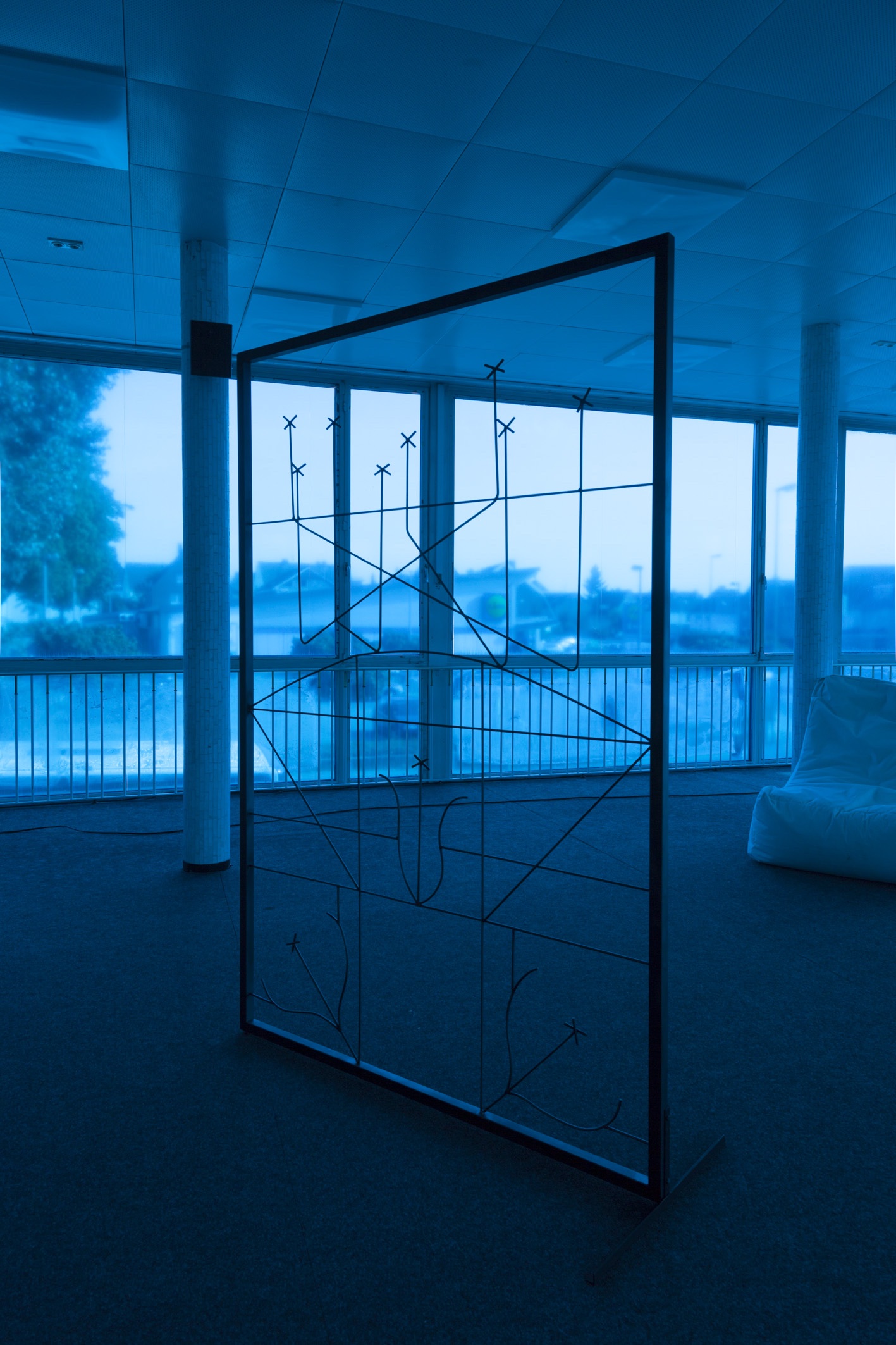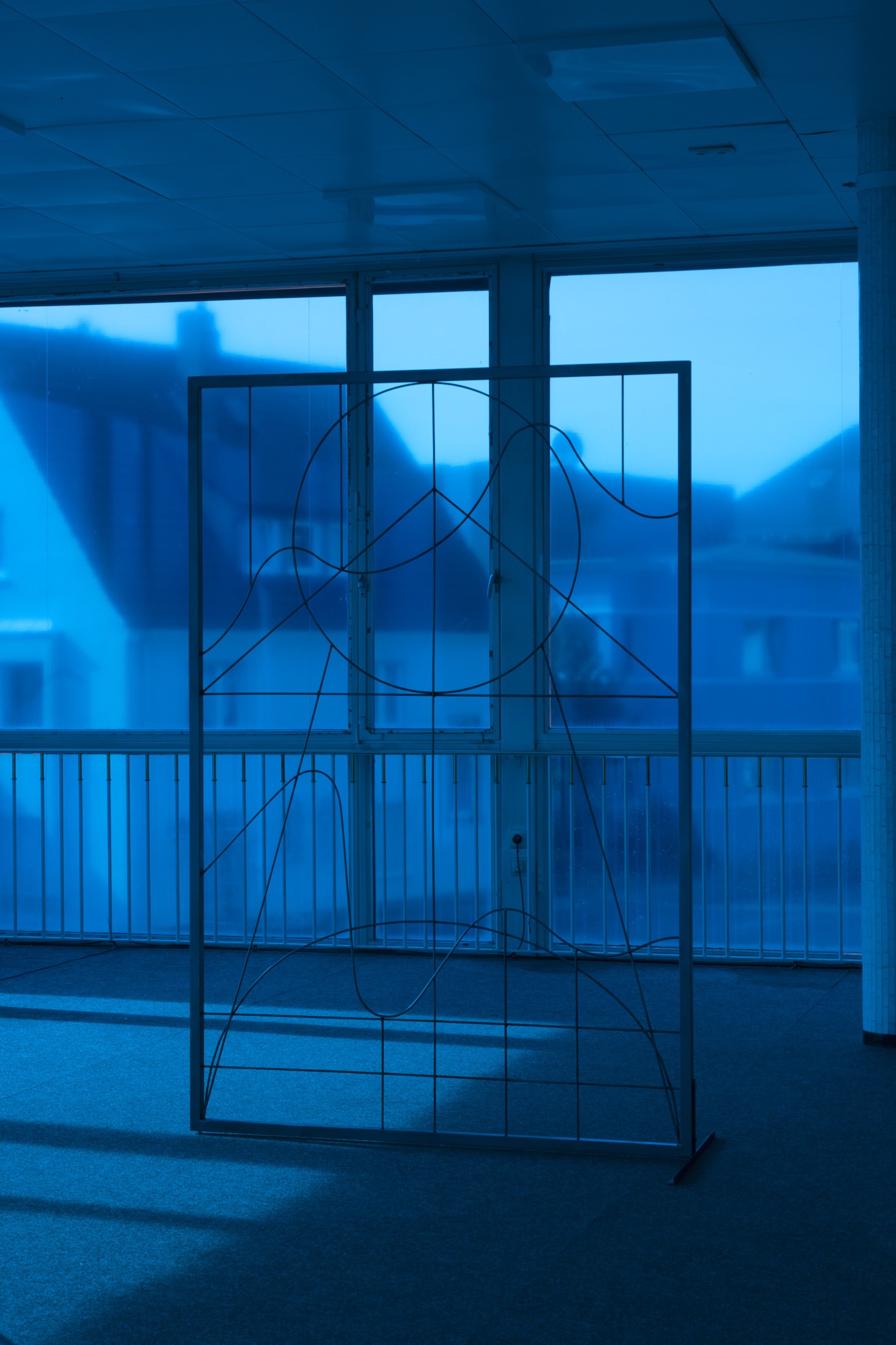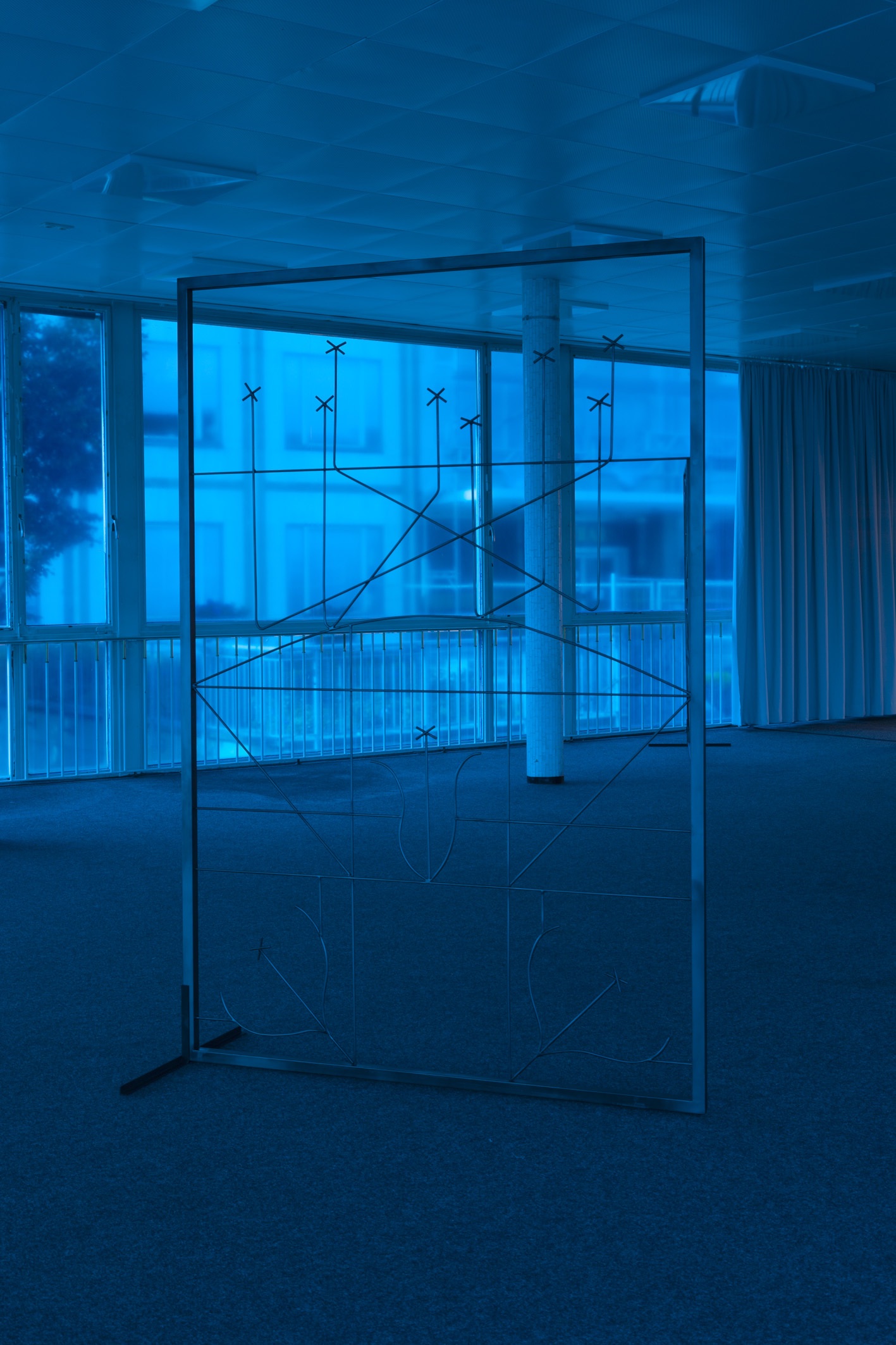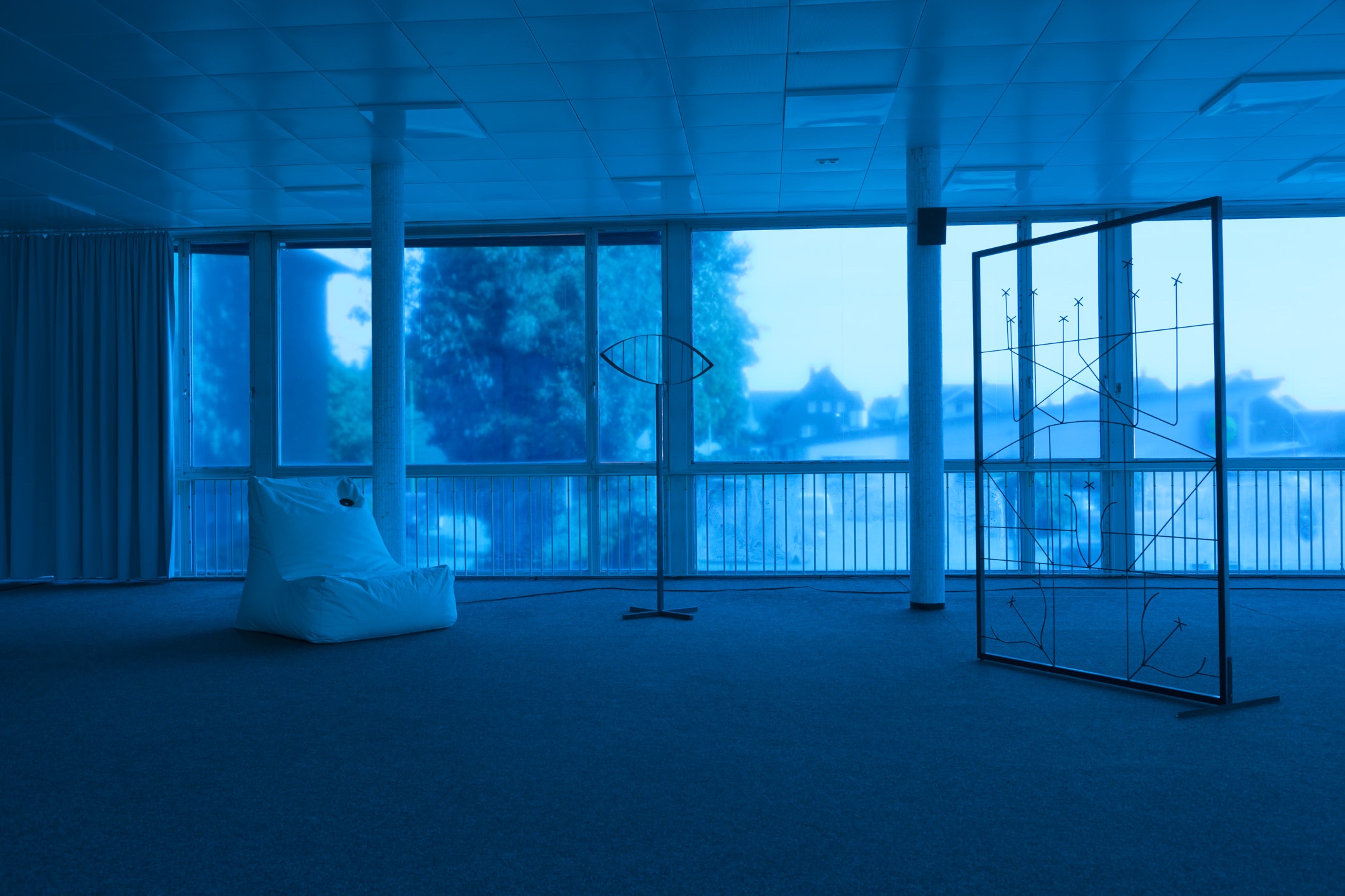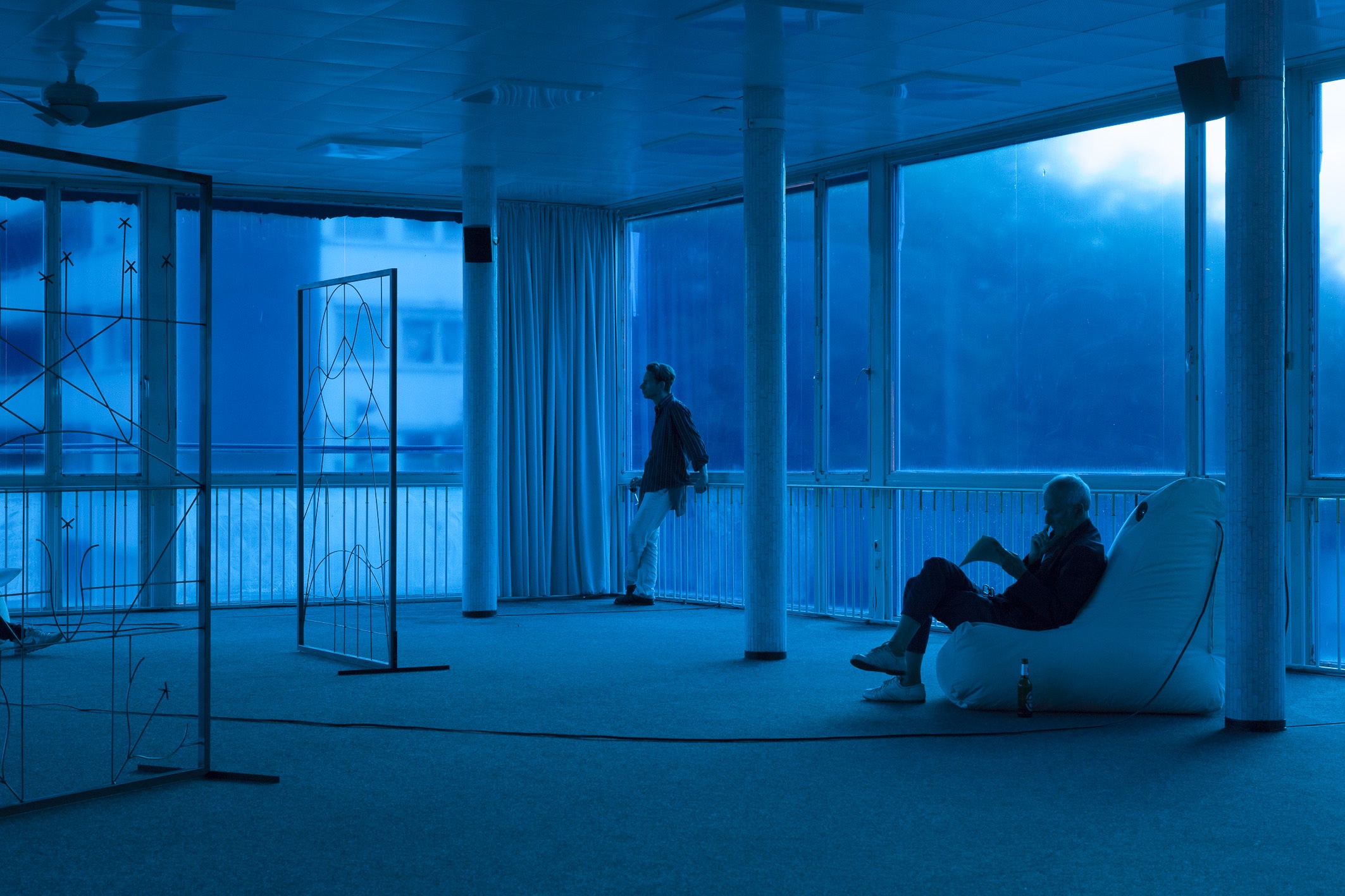
Sun in Cancer
Attuning to vulnerable figures, to the precariousness of female bodies working as unwaged labour and women’s historical exclusion from capitalism development (also in Marxist and post-structuralist accounts) is vital to rehearse conditions through which we can engage practices of rescuing from, resisting to and sounding the canon. As Brandon LaBelle sensitively notes, “Sound teaches us to be weak, and how to use weakness as a position of strength."
Policarpo speaks of her compositions and visual artwork as “hosts to research,” rendering her installations not as renditions or reinterpretations of Johanna Beyer’s work, but rather, as narrative account of the broader conditions in which her work unfolded. Here, the artist adopts a fine analysis of the processes of subjectivation associated with capitalist governance and, as Italian philosopher Maurizio Lazzarato remarks, Policarpo creates a stage for “the relation between discursive and non-discursive, conceptual and existential [that] should not end in silence (…) but must be worked at, conceptualized, semiotized, staged, narrated, etc. starting from the unrepresentable. In Sun in Cancer (2016) and Dissonant Counterpoint (2017), Beyer’s ghostly sounds are reconstructed from the original score and her personal exchange with the ultra-modernist composer Henry Cowell and colleagues, resonating in a sensible field—an ethics of complicity—with the counter-voices of History, which allows affective expression to emerge as attunement—to the silence, the silenced and the underheard.
Most of Beyer’s compositions remain preserved solely as graphic notations. Featuring in Sun in Cancer (2016), Status Quo / Music of the Spheres was written in the years between her diagnosis with a chronic nervous disorder and her death in 1944. And it wasn’t until 1977 that the unfinished piece was arranged and premiered in California.
Excerpt from Diana Policarpo: Sounding Agency (for Contemporânea Magazine, Ed. 06/2018)
By Sofia Lemos
(Photo: Lucie Marsmann)

